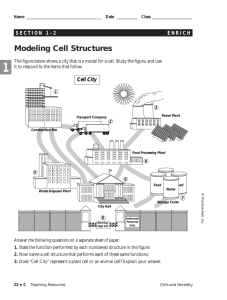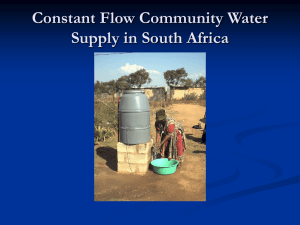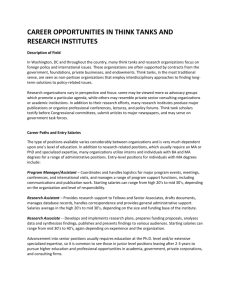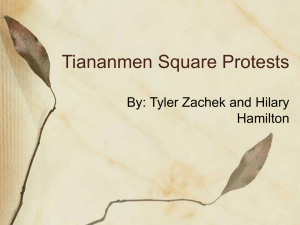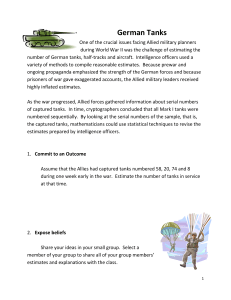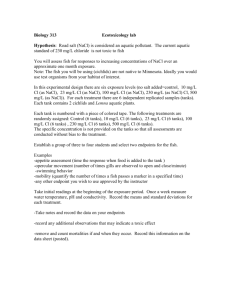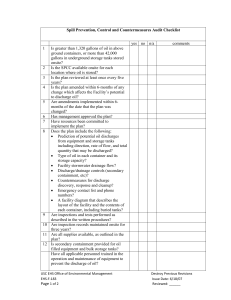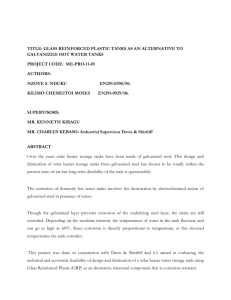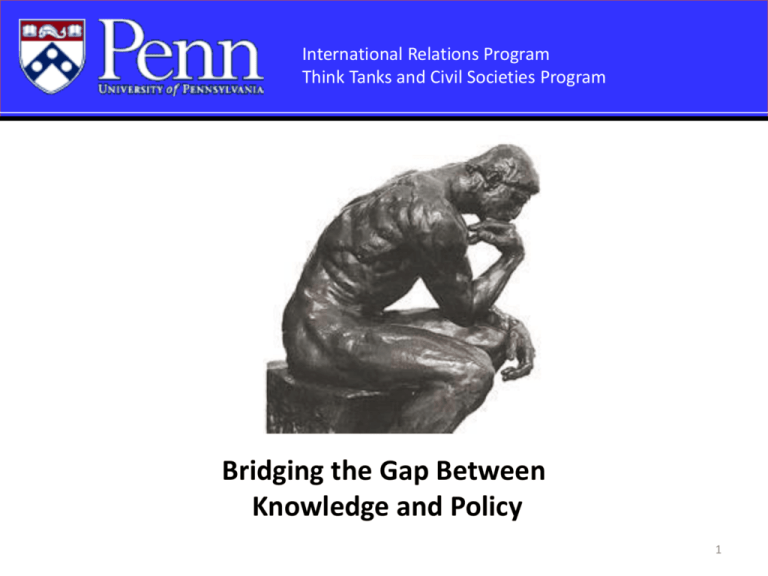
International Relations Program
Think Tanks and Civil Societies Program
Bridging the Gap Between
Knowledge and Policy
1
International Relations Program
Think Tanks and Civil Societies Program
The 2009 Global Go-To Think Tank Rankings
(aka Global Think Tank Index)
United Nations University
Current Affairs Series
Thursday, January 21, 2009
International Relations Program
Think Tanks and Civil Societies Program
“The challenge for the new millennium is to
harness the vast reservoir of knowledge,
information, and associational energy that
exist in public policy research organizations in
every region of the world for public good.”
(Think Tanks and Policy Advice McGann 2007)
International Relations Program
Think Tanks and Civil Societies Program
Presentation Outline
•
Nomination Methodology
•
Selection Criteria
•
Nomination Results
•
Ranking Voters
•
Final Process
•
Final Ranking Categories
International Relations
International
RelationsProgram
Program
Think Tanks
Civil
Societies
Program
Think
Tanksand
and
Civil
Societies
Program
What is a think tank?
Think tank:
•Knowledge-based, policy-oriented institutions
•Serve governments, intergovernmental
organizations, and civil society
•Generate policy-oriented research, analysis, and
advice on domestic and international issues
•Engage policymakers, ,the media and the public on
key policy issues
•Enable policymakers and the public to make
informed decisions about public policy issues
Introduction to Think Tanks
5
International Relations Program
Think Tanks and Civil Societies Program
Recent Think Tank Trends
2000s
1980s
1960s and
1970s
• TTs start to
appear in
large
numbers,
especially in
OECD
countries
• Global
expansion of
TTs begin as
TTs start to
specialize
• First studies of
TTs in
literature
appear
1990s
• Explosive
increase in
number of TTs
worldwide
• Global networks
of TTs form the
most
comprehensive
source of
information
internationally
available for
policy makers
Introduction to Think Tanks
6
International Relations Program
Think Tanks and Civil Societies Program
Global Dispersion of Think Tanks
There are currently 6,976 Think Tanks worldwide
4% 1%
North America: 1913
9%
Europe: 2393
28%
Western: 1872
Eastern: 521
Africa: 507
Asia: 1210
17%
Latin America: 643
Middle East and North Africa: 271
7%
Oceania: 39
34%
Introduction to Think Tanks
7
International Relations Program
Think Tanks and Civil Societies Program
• Overview of the 2009 GGTTT Rankings Process
Think tank profile surveys sent to over 6000 think tanks (Spring & Summer)
Call for nominations for the GGTTT Rankings Expert Panel (Aug.)
300 Expert Panelists are Nominated and all but 5 agree to participate (Sept.)
Expert Panelists submit nominations Round I 400 TTs are nominated (Sept.
Oct.)
Round II Nominations Process Opened to 1000 individuals and institutions
(Nov. Dec.) Write in nominations are available for all categories. 205 people
participate in Round II
Round III 8500 individuals are invited to participate in the final selection of
2009 Global Go To Think Tanks. 740 partipate in the final round (Dec. Jan.)
Over 1200 experts, peers and public and private donors participated in the
nominations and selection process. (Sept. 09 - Jan. 10)
International Relations Program
Think Tanks and Civil Societies Program
Nomination Methodology
•
Relying on previous studies, national and global think tank directories and
databases, TTCSP annual think tank survey all known think tanks and experts in
the field, 6030 institutions were considered for possible inclusion in the study.
•
Over 300 individuals representing international group of scholars, former think
tank executives, public and private donors, journalists and policymakers were
nominated to serve on an Expert Panel.
•
The panel of Experts nominated a slate of institutions 2009 Global Think Tank
Rankings. Each institution had to receive two or more nominations to be included
in the universe of institutions that would be ranked.
International Relations Program
Think Tanks and Civil Societies Program
Selection Criteria
•
A detailed set of criteria were used guide the nomination and selections process.
•
The greatest challenge in assessing these institutions (many of which are, by the
very nature of their work, political) is to abstract from subjective characteristics
and focus rather than universal, concrete features.
•
The following criteria were intended to help provide a metric for identifying the
top think tanks in the world.
International Relations Program
Think Tanks and Civil Societies Program
Selection Criteria
•
Direct relationship between organization’s efforts in a particular area, and positive
change in that area.
•
Extent to which respected publishers agree to publish an organization’s works.
•
Ability to retain elite scholars and analysts.
•
Access to elites in the area of policymaking, media, and academia.
•
Academic reputation (formal accreditation; citations; publication in major
academic books, journals, conferences, etc.)
1/4
International Relations Program
Think Tanks and Civil Societies Program
Selection Criteria
•
Media reputation
•
Reputation with policymakers
•
Level of organization’s financial resources
•
Ability to meet the demands of funders or to meet the goals of its respective
grant-making institution.
•
Overall output of organization
2/4
International Relations Program
Think Tanks and Civil Societies Program
Selection Criteria
•
Number of recommendations adopted by policymakers, staff serving advisory
roles to policymakers, awards given to scholars.
•
Usefulness of organization’s information in advocacy work, preparing legislation or
testimony, preparing academic papers or presentations, conducting research, or
teaching.
•
Ability to produce new knowledge or alternative ideas on policy.
3/4
International Relations Program
Think Tanks and Civil Societies Program
Selection Criteria
•
Ability to bridge the knowledge gap between policymakers and “on the ground”
realities.
•
Ability to include new voices in the policymaking process.
•
Organization’s ability to be the hub for or central actor in issue and policy
networks.
•
Success in challenging the traditional wisdom of policymakers and the public.
4/4
International Relations Program
Think Tanks and Civil Societies Program
Nomination Results
•
An institution had to receive two or more nominations to be eligible for a ranking.
•
Approximately 392 institutions were identified for ranking through this process.
•
U.S. think tanks were ranked separately.
International Relations Program
Think Tanks and Civil Societies Program
Profile of those who participated in GGTTT Rankings
•
From the list of 407 think tanks final voting panelists were then asked to
identify the top think tanks in the world by region, research area and areas of
distinction.
•
Peer and Expert Panelists included:
• 300 nominated expert panelists
• 125 journalists and scholars who study think tanks & NGOs
• 30 current and former directors of think tank programs and networks
• 15 public and private donors
• 63 civil society representatives
• 100s of think tanks
• 35-40 intergovernmental organizations
• 65 Academic institutions
International Relations Program
Think Tanks and Civil Societies Program
Final Process
•
This year over 1200 peers and experts from all the groups listed participated in the
final selection process. Last year 150 individuals participated in the process.
•
Participants in the rankings process included representatives from broad range of
academic disciplines, political perspectives and sectors (NGO, IGO, Public and
Private) and every region and most countries of the world.
•
Experts and peer institutions that participated in the nominations and ranking
process were able to vote on the top global think tanks, top regional think tanks
and specialty categories separately so the rankings are independent from one
another. This way, panelists may nominate think tanks in areas they were
knowledgeable to assure proper and meaningful geographic regional
representation.
•
Votes were then tallied and the lists of leading think tanks developed.
International Relations Program
Think Tanks and Civil Societies Program
Final Ranking Categories
•
Final think tank rankings by geographic area included:
–
–
–
–
–
–
–
–
–
–
Top Think Tank in the World
Top 50 Think Tanks Worldwide
Top 30 Think Tanks- United States
Top 25 Think Tanks- North America
Top 25 Think Tanks in Latin America and the Caribbean
Top 25 Think Tanks in the Middle East and North Africa
Top 25 Think Tanks in Southern Africa (Including Sub-Saharan Africa)
Top 25 Think Tanks in Western Europe
Top 25 Think Tanks in Eastern Europe
Top 25 Think Tanks in Asia
International Relations Program
Think Tanks and Civil Societies Program
Final Ranking Categories
•
Final think tank rankings by Research Area included:
–
–
–
–
–
–
–
–
Top 10 International Development Think Tanks
Top 10 Health Policy Think Tanks
Top 10 Environment Think Tanks
Top 10 Security and International Affairs Think Tanks
Top 10 Domestic Economic Policy Think Tanks
Top 10 International Economic Policy Think Tanks
Top 10 Social Policy Think Tanks
Top 10 Science and Technology Think Tanks
International Relations Program
Think Tanks and Civil Societies Program
Final Ranking Categories
•
Think tanks were also categorized as Top 3 Think Tanks with Innovative Ideas and
Strategies, such as:
–
–
–
–
–
–
Think Tanks with the Most Innovative Policy/Idea Proposal
Best New Think Tank (established in the past 3-5 years)
Outstanding Policy Oriented- Public Policy Research Program
Best Use of Internet to Engage the Public
Best Use of the Media (Print or Electronic) to Communicate Programs and Research
Most Impact on Public Policy and Debates
International Relations Program
Think Tanks and Civil Societies Program
And The Top Think Tanks for 2009 Are:
• Brookings Top Think Tank (US)
• Fraser Institute (Canada and Mexico)
• Chatham House, (Western Europe)
• Carnegie Moscow Center (Eastern and
Central Europe)
International Relations Program
Think Tanks and Civil Societies Program
• Fundación Getulio Vargas, (Latin America)
• Carnegie Middle East Center, (Middle East)
• South African Institute of International Affairs
(SAIIA), (Southern Africa)
• Japan Institute of International Affairs (JIIA)
(Asia)
International Relations Program
Think Tanks and Civil Societies Program
• Overseas Development Institute (Int’l
Devleopment)
• Harvard School of Public Health Dept of
Health Policy (Health Policy)
• Pew Center on Global Climate Change,
(Enviornment)
• Council on Foreign Relations (Security and
International Affairs)
International Relations Program
Think Tanks and Civil Societies Program
• Brookings Institution (Domestic Economics)
• Peterson Institute for International
Economics, (International Economics)
• Urban Institute (Social Policy)
• RAND (Science and Technology)
International Relations Program
Think Tanks and Civil Societies Program
• Brookings Institution (Innovative Policy
Proposal)
• European Council on Foreign Relations (Best
New Think Tank)
• Brookings Institution (Best Policy Research
Program)
• Carnegie Endowment for International Peace
(Best Use of the Internet)
International Relations Program
Think Tanks and Civil Societies Program
• Amnesty International (Best Use of the Print
and Electronic Media)
• Center for American Progress (Most impact on
Policy)
International Relations Program
Think Tanks and Civil Societies Program
• Chatham House, UK (Top TT World-Non US)
• Brookings Top Think Tank (World)
International Relations
Program
Research
Team
Think Tanks and Civil Societies Program
James McGann Ph.D.
Research Team:
James G. McGann, Ph.D.
– George Edwards, University of Pennsylvania
– Lua O’Brien, University of Pennsylvania
– Margarita Shlykova, Villanova University
– Rosalyn Daitch, University
28
International Relations Program
Think Tanks and Civil Societies Program
Think Tanks & Civil Societies Program
©2009, University of Pennsylvania
All rights reserved. Except for short quotes, no part of this presentation may be
reproduced or utilized in any form or by any means, electronic or mechanical,
including photocopying, recording, or by information storage or retrieval system,
without written permission from the University of Pennsylvania.
All requests, questions and comments should be sent to:
James G. McGann, Ph.D.
Director
Think Tanks and Civil Societies Program
University of Pennsylvania
635 Williams Hall
255 S. 36th Street
Philadelphia, PA 19104-6305
Phone: 001 (215) 898 0452
jmcgann@sas.upenn.edu
29

